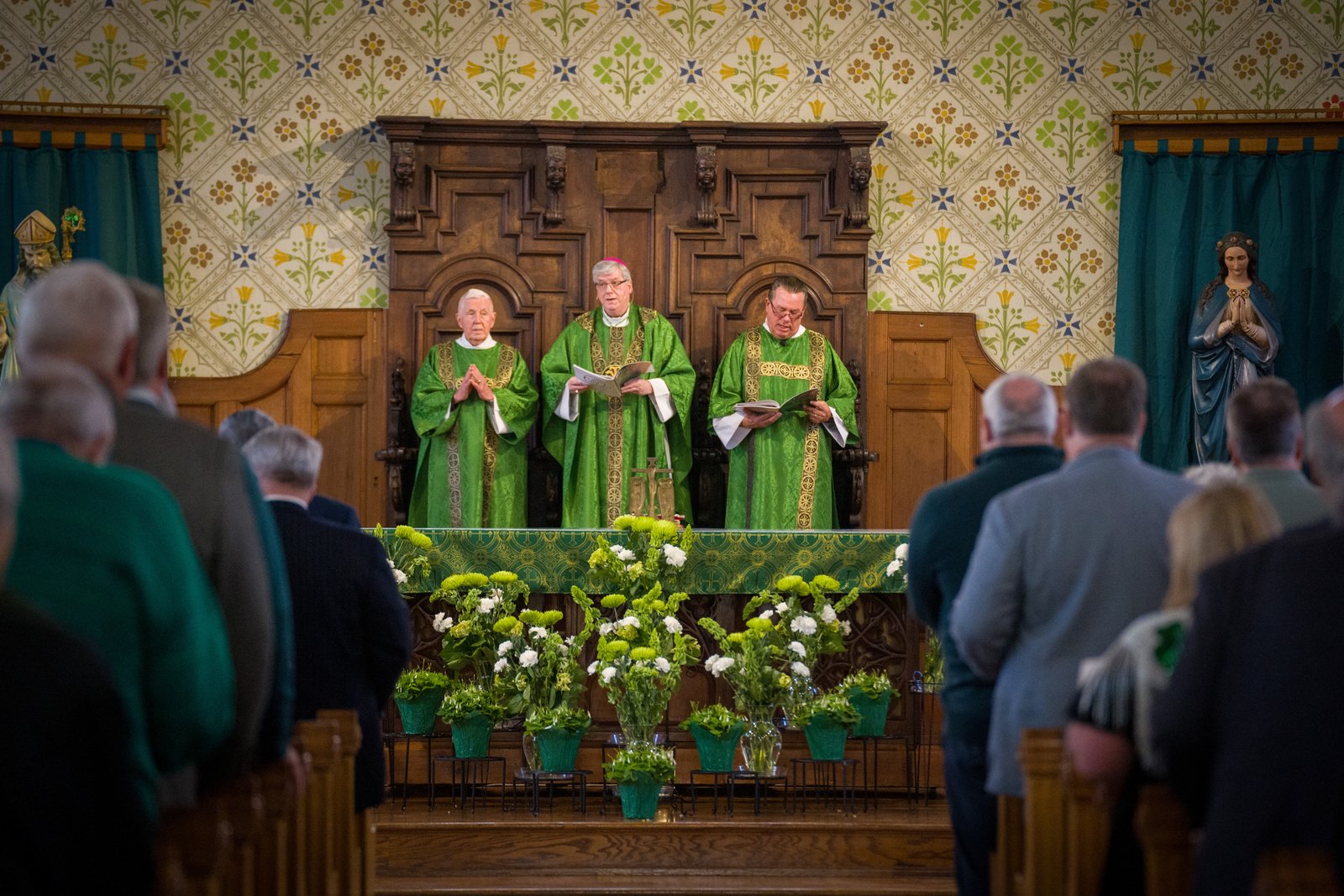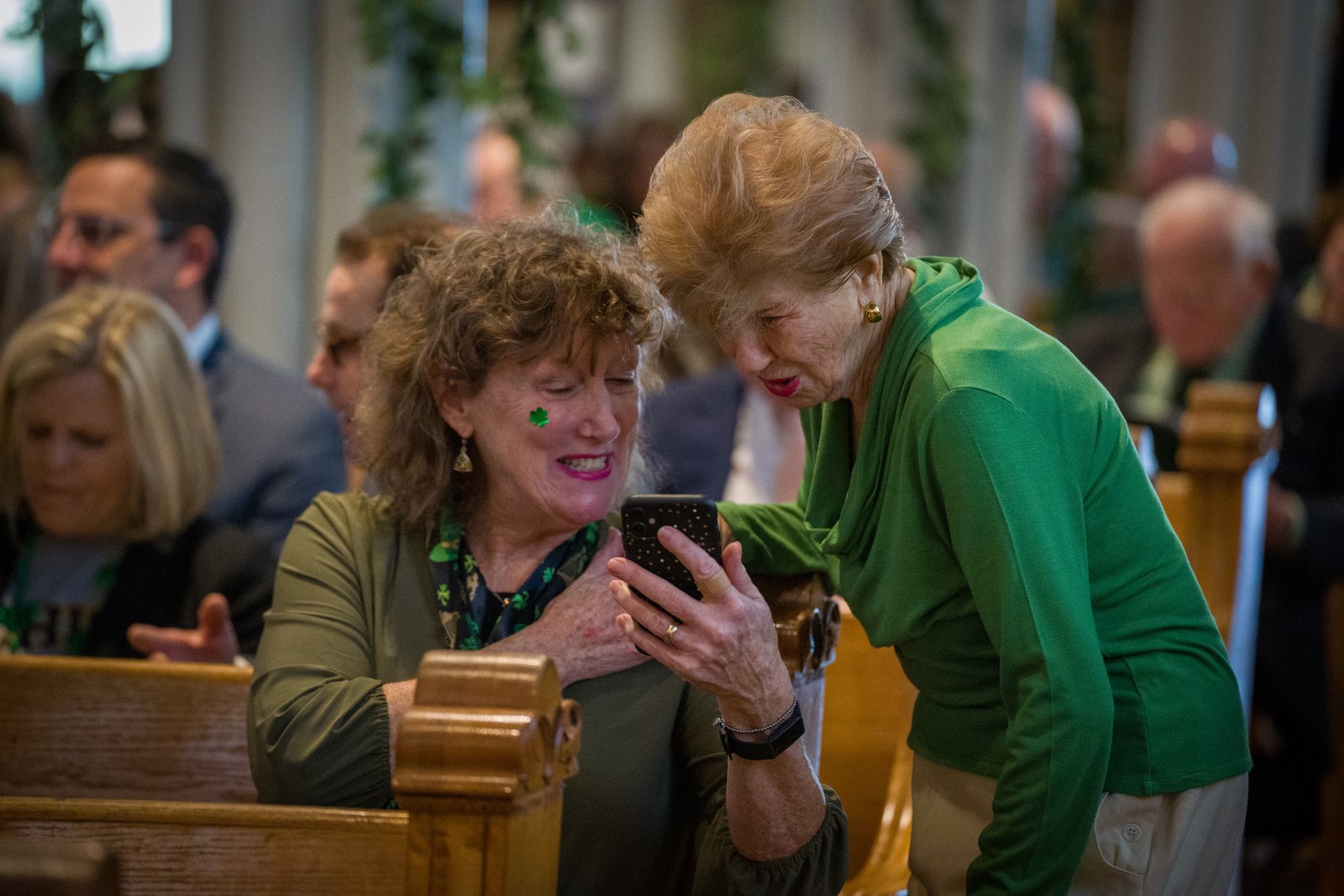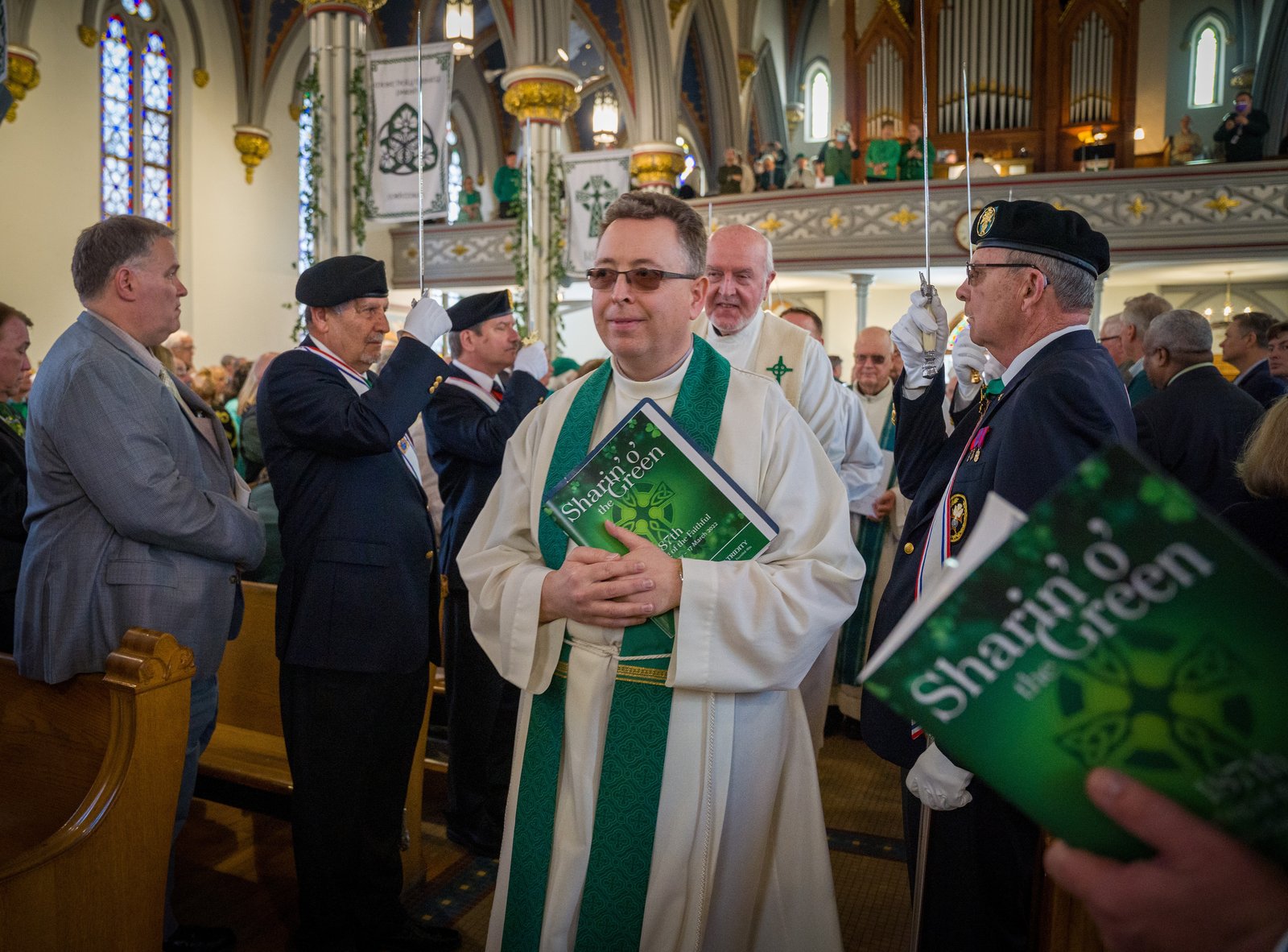St. Patrick converted the Irish, and the Irish converted the world, Fr. McCarrick preaches: 'One of the greatest missionary activities ever'
DETROIT — God chose St. Patrick to convert the Irish. And the Irish, in turn, were chosen to convert the world.
That was the message given to the faithful during the 187th St. Patrick's Day gathering at Most Holy Trinity Church in Detroit's Corktown neighborhood, with Auxiliary Bishop Gerard W. Battersby — whose ancestors hail from Belfast — presiding.
The Irish diaspora reaches the four corners of the world, a fact made evident every March 17, when it seems everyone finds some Irish blood in their veins and is decked out in green.

“This morning, I recalled how in the 19th century, the population of Ireland decreased from 9 million to 4.5 million; half the country left either from death or emigration,” Bishop Battersby said. “I think of what the Irish brought to the country. What they did not have in material goods, they had in their faith. They had faith in Jesus Christ, and they brought their faith, their time, their treasure to the Church. The Irish diaspora was, and is, so critical in proclaiming the Gospel of Jesus Christ.”
MORE PHOTOS FROM ST. PATRICK'S DAY AT MOST HOLY TRINITY
Fr. Brendan McCarrick, SAC, a County Sligo native and pastor of St. Vincent Pallotti Parish in Wyandotte, delivered the homily, linking St. Patrick’s fifth-century mission of evangelizing the Irish to the faithful’s 21st century mission of evangelizing the world.
“In 432, a young man named Patrick was sent to the Christian people of Ireland to teach them about the Gospel,” Fr. McCarrick said, sporting his brogue accent. “He was sent to teach them love, mercy, kindness and to care for one another. Ireland at the time was a pagan country, but a mere 100 years later, missionaries from Ireland landed on foreign shores to proclaim the good news of Jesus throughout the world.

“The success of St. Patrick must be one of the greatest missionary activities ever achieved in the world,” Fr. McCarrick proclaimed.
Patrick was the son of a Roman-Briton nobleman who was once kidnapped and sold into slavery by Irish reveres. Upon his escaping, his discovered the Christian faith, was ordained a priest and was sent by Pope Celestine I to lead the fledging Church in Ireland.
Patrick’s mission in Ireland started in 432. There already were Christians in the country, but Patrick was sent to be a bishop in the new community.
“The ancient Church, nor the Church of today, wasn’t in the habit of sending bishops to what is essentially virgin territory with no Christians, so Patrick was sent to a land that had Christians and pagans, preaching to both,” Fr. McCarrick said. “In the world of today, those called to be missionaries are changing: All baptized men and women are now called to be joyful missionary disciples of the Gospel. All are invited by Jesus to spread the good news and to be people who stand for righteousness, justice, peace and caring for all of God’s children, following the path of St. Patrick himself.”

St. Patrick serves as an example for all missionaries, Fr. McCarrick said, standing up for the downtrodden, preaching the Gospel in a manner people can understand, and, most of all, being an authentic witness to Jesus Christ.
“Patrick’s primary focus was the souls of those he had baptized, the Christian community of the day,” Fr. McCarrick said. “To this day, the same challenge remains: Do I care for other people? Do we accept tyranny in the world today? Or are we like St. Patrick, taking up the cause of other people’s lives into our own hands?”
The annual Mass at Most Holy Trinity is the spiritual home of St. Patrick’s Day celebrations in Detroit. A special collection, the “Sharin’ o’ the Green,” is taken up to support Most Holy Trinity Academy, the Cabrini Clinic, the Most Holy Trinity legal clinic and other support services the historic parish provides in the Corktown neighborhood.
After two years of subdued celebrations, the parish resumed its "Taste of Corktown" event, featuring food and drinks from area bars and restaurants. This year’s luncheon was sold out.

“Since 1834, the home of the Irish-Catholic community has been right here at Most Holy Trinity,” said Msgr. Chuck Kosanke, pastor of Most Holy Trinity Parish. “This is the second-oldest parish in the city, the oldest school in Detroit, which was established in 1838, and home of the oldest free medical clinic in Detroit. I am so happy, and St. Patrick is so happy that you are here.”
The Mass featured bagpipers and members of the Ancient Order of Hibernians forming an honor guard before Mass, and the Regina High School choir from Warren singing Irish hymns, including the ever-popular “Danny Boy,” before Mass.
“It’s exciting to see the Irish community around the church,” Daniel Rose, a Most Holy Trinity parishioner, told Detroit Catholic. “This church plays a critical role in the community of Corktown and southwest Detroit every single week throughout the year. The money raised from today supports the parish for the rest of the year.”
Beyond celebrating Most Holy Trinity’s outreach to the neighborhood and its rich Irish heritage, Rose said the day allows him, and countless other Irish-Americans, to tap into their missionary roots and spread the Gospel today.
“I think of the readings from today, Peter being called to be a ‘fisher of men,’” Rose said. “(It's about) being a missionary and going out, carrying that message and Irish love and support and energy into the world with you. That is the Catholic message one can live this day.”
Copy Permalink
Feast days












